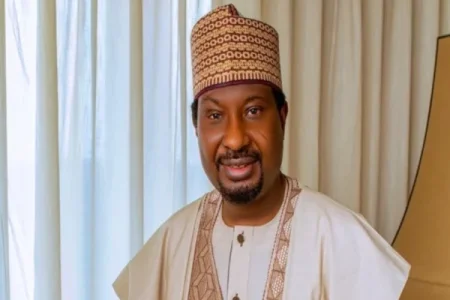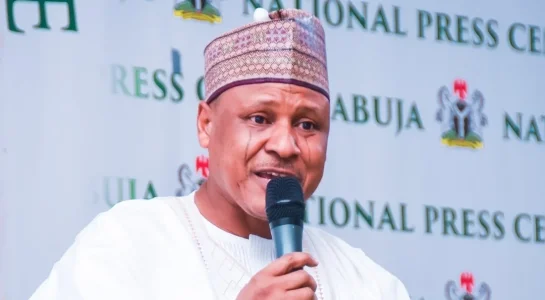
Deputy Senate President Jibrin Barau opposes the National Animal Husbandry and Ranches Commission bill, arguing it breaches constitutional rights by relocating Fulani herders to their states of origin. Despite his objections, the Senate passed the bill for further review, sparking a debate on land use and ethnic identity.
In a heated Senate session on Wednesday, Deputy President of the Senate, Jibrin Barau, vehemently opposed a bill aimed at establishing the National Animal Husbandry and Ranches Commission. The bill, sponsored by Senator Titus Tartenger Zam from Benue State, seeks to relocate Fulani herders to their states of origin, a move Barau argues is both impractical and unconstitutional.
Barau asserted that the bill infringes on the constitutional right of Nigerians to choose their residence, highlighting that many Fulani herders may not know their states of origin due to generational settlement in various parts of the country. “There is a snag in this bill,” Barau said. “You cannot stop any Nigerian from living in any area that he so wishes.”
Drawing from personal experience, Barau noted that he had benefitted from living outside his place of origin, emphasizing that Fulani herders should similarly be allowed to reside wherever they choose. He cited the case of a Fulani settlement visited by Senator Natasha in her senatorial zone, stressing that these people consider their current location as their home.
Barau's stance sparked a heated debate, but he found himself largely alone as other Senators welcomed the bill. Despite his passionate plea, the majority supported the bill when Senate President Godswill Akpabio put it to a voice vote.
Barau suggested the bill be revised to align with the Nigerian Constitution, advocating for further consultation to ensure it respects the right of all Nigerians to reside and conduct business wherever they choose. “We should address the issue to reflect wherever someone is, it’s his place, and he can do his business there,” Barau urged.
Despite Barau's objections, the bill passed its second reading and was committed to the relevant committee for public hearing, moving one step closer to becoming law. The debate highlights the complex issues surrounding land use, ethnic identity, and constitutional rights in Nigeria's legislative process.



